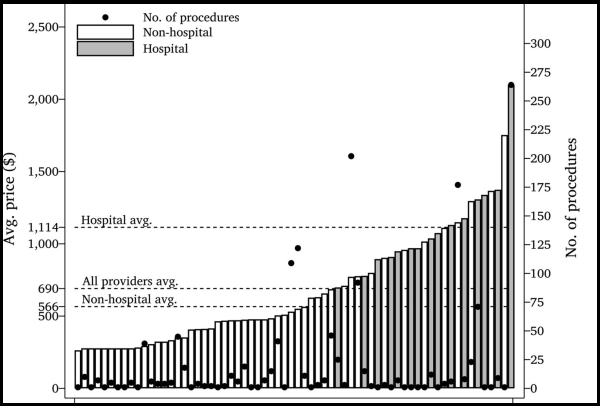
If you, your spouse/partner or a child needed an MRI of a lower extremity (like a knee MRI without contrast), where would you go?
The quick and most likely answer to that questions is: You'd go where your orthopedist sends you. Unless he or she is in a very large practice, in which case the group might have its own machine. Otherwise, you'll receive a referral to an imaging clinic—one to which your ortho specialist regularly refers patients.
But even if you have fairly high-quality insurance coverage through your job, you'll likely pay for the MRI out-of-pocket due to cost sharing (the part you pay) and in this case almost surely because the procedure is subject to your annual deductible. So is this imaging center the best value? As we've discussed previously, do you really want to pay upwards of $2,000.00 when a nearby MRI might be $450.00 or less?
Yale Professor and Health Economist Zack Cooper is a co-author of a groundbreaking study on medical consumerism, focusing on the frequently-purchased, commodity-level "lower-limb MRI scan." Commodity, because unlike the rigorous image-quality needed for say, a cardiac echo, lower-limb MRI scan quality is essentially equivalent across providers.
So, you can get this MRI most anywhere. Price then becomes the determining factor of value. There is unfortunately great price differential with little to no quality differentiation. In the study done for the Journal of Health Economics, consumers are referred by their specialists, and they "...often receive care in high-priced locations..." and "on average...bypass 6 lower-priced providers..." on their way to the higher priced provider their physician referred them to. One major finding is that MOST patients don't have to drive further to save money. Mostly the opposite.
According to the graph shown nearby as part of the study, the highest-priced imager is also the one doing the largest number of MRI scans!
The authors naturally find that the most important factor in choosing an imaging center is the doctor's referral: "...patients just listen to their MD on where to go" Mr. Cooper tweets. When an MD orders physical therapy, it is by prescription (which you can take anywhere you want), whereas tests like an MRI are by referral.
Perhaps there is a role for the profession to alter protocols—or even a role for possible legislation. After all, referrals permeate the entire healthcare industry, many with more than a minor hint of official nepotism. Sadly, structural realities across the medical landscape provide ample evidence that in today's environment, consumers are ill-equipped to "price-shop" for value in healthcare, particularly in cases like a CT-Scan or MRI.
DOC$ was founded to alter this reality based upon a simple, paradigm-shifting principle: Healthcare consumers acting not alone, but in a cooperative effort, can share their purchase information into our system, then the multiple inputs of these purchase records can be viewed in a localized, comparative grid of competing providers to see their relative value points for any specific image, test, procedure or other medical purchase.
Know the Cost of Healthcare BEFORE You Go In!